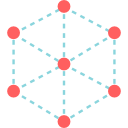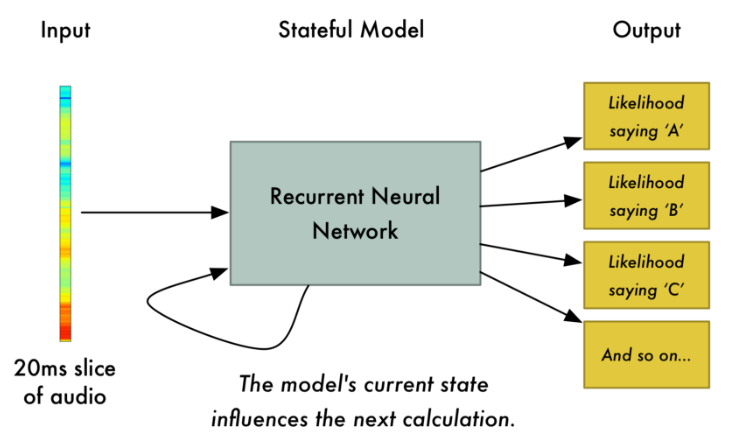Neural network modeling: Difference between revisions
Mr. MacKenty (talk | contribs) |
Mr. MacKenty (talk | contribs) |
||
| (6 intermediate revisions by the same user not shown) | |||
| Line 15: | Line 15: | ||
=== Optical character recognition === | === Optical character recognition === | ||
Optical character recognition...is the mechanical or electronic conversion of images of typed, handwritten or printed text into machine-encoded text.<ref>https://en.wikipedia.org/wiki/Optical_character_recognition</ref> '''Please note: none of the resources I could find are excellent. But taken together as a whole, they should help improve your understanding of how neural networks work with OCR'''. | Optical character recognition...is the mechanical or electronic conversion of images of typed, handwritten or printed text into machine-encoded text.<ref>https://en.wikipedia.org/wiki/Optical_character_recognition</ref>. | ||
'''Please note: none of the resources I could find are excellent. But taken together as a whole, they should help improve your understanding of how neural networks work with OCR'''. | |||
* [[:media:Optical Character Recognition using Artificial Ne.pdf|This file is a pdf of a presentation on neural networks and OCR]] | * [[:media:Optical Character Recognition using Artificial Ne.pdf|This file is a pdf of a presentation on neural networks and OCR]] | ||
* [https://rawgit.com/Jokelab/NeuralNetworkDemo/master/Default.html This is an interactive javascript tool] | |||
* [http://tesseract.projectnaptha.com/ This is also an online tool which performs OCR on a picture with text] | |||
<html> | <html> | ||
| Line 25: | Line 28: | ||
=== Natural language processing === | === Natural language processing === | ||
Natural language processing (NLP) is a subfield of computer science, information engineering, and artificial intelligence concerned with the interactions between computers and human (natural) languages, in particular how to program computers to process and analyze large amounts of natural language data.<ref>https://en.wikipedia.org/wiki/Natural_language_processing</ref> | Natural language processing (NLP) is a subfield of computer science, information engineering, and artificial intelligence concerned with the interactions between computers and human (natural) languages, in particular how to program computers to process and analyze large amounts of natural language data.<ref>https://en.wikipedia.org/wiki/Natural_language_processing</ref>. | ||
* [[Natural Language Processing]] has some helpful terms | |||
* [https://www.quora.com/How-are-neural-networks-used-in-Natural-Language-Processing This Quora post has a good summary of how NN are used for NLP)] | |||
* [http://compromise.cool/ This site can help you start to see some features of NLP (but there is no neural network here)] | |||
* [https://www.youtube.com/watch?v=5ctbvkAMQO4 This video is a short summary of NLP] | |||
* [https://www.youtube.com/watch?v=8S3qHHUKqYk This is a rather interesting video (33 minutes) explaining parts of NLP] | |||
* [https://www.youtube.com/watch?v=V8qrVleGY5U This video (ONLY WATCH THE FIRST 4 MINUTES) helps us understand how neural networks are used in NLP)] | |||
== Standards == | == Standards == | ||
* Compare applications that use neural network | * Compare applications that use neural network modeling. | ||
* Compare different ways in which neural networks can be used to recognize patterns. | |||
== References == | == References == | ||
Latest revision as of 07:58, 5 March 2019

Introduction[edit]
Examples include:
Speech recognition[edit]
Speech recognition is the inter-disciplinary sub-field of computational linguistics that develops methodologies and technologies that enables the recognition and translation of spoken language into text by computers.[2]
- One of the very best articles I have ever seen on speech recognition and neural networks.
- Click here for a REALLY bad video trying to describe this.
- Click here for a more advanced video on this
Optical character recognition[edit]
Optical character recognition...is the mechanical or electronic conversion of images of typed, handwritten or printed text into machine-encoded text.[3].
Please note: none of the resources I could find are excellent. But taken together as a whole, they should help improve your understanding of how neural networks work with OCR.
- This file is a pdf of a presentation on neural networks and OCR
- This is an interactive javascript tool
- This is also an online tool which performs OCR on a picture with text
Natural language processing[edit]
Natural language processing (NLP) is a subfield of computer science, information engineering, and artificial intelligence concerned with the interactions between computers and human (natural) languages, in particular how to program computers to process and analyze large amounts of natural language data.[4].
- Natural Language Processing has some helpful terms
- This Quora post has a good summary of how NN are used for NLP)
- This site can help you start to see some features of NLP (but there is no neural network here)
- This video is a short summary of NLP
- This is a rather interesting video (33 minutes) explaining parts of NLP
- This video (ONLY WATCH THE FIRST 4 MINUTES) helps us understand how neural networks are used in NLP)
Standards[edit]
- Compare applications that use neural network modeling.
- Compare different ways in which neural networks can be used to recognize patterns.
